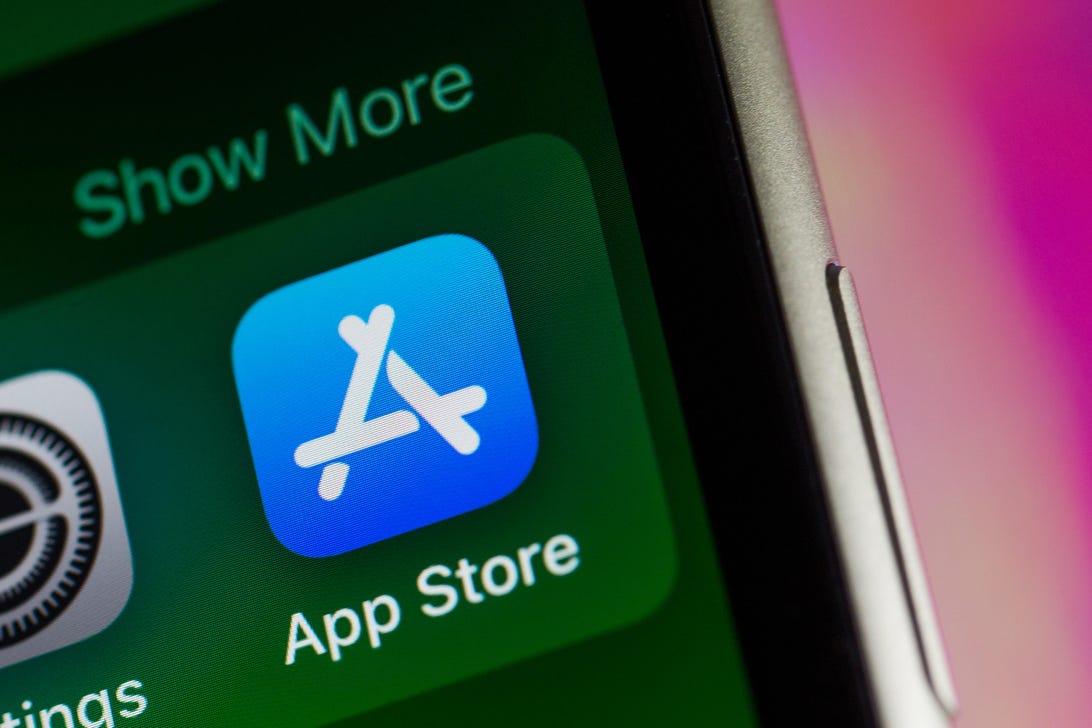
Angela Lang/CNET
Apple on Wednesday told developers they can now apply to allow “external link account entitlement,” a new designation that allows some apps to include signup links that point outside the App Store. The move, which was announced last year as part of a settlement with Japan’s Fair Trade Commission, will allow “reader” apps like streaming services more leeway in how they sign up customers.
Apple told developers in a blog post that the reader apps will be able to link to a website that is owned and maintained by the developer, so people can “create or manage their account outside of the app.” The new rules for its App Store, which Apple had resisted, will apply globally to apps that provide magazines, newspapers, books, audio, music or video as their primary function.
“Trust on the App Store is everything to us. The focus of the App Store is always to create a safe and secure experience for users, while helping them find and use great apps on the devices they love,” Phil Schiller, Apple Fellow who oversees the App Store, said in a statement when announcing the change in September last year.
Netflix and Spotify, two reader apps who historically have spoken out about Apple’s App Store policies, didn’t immediately respond to requests for comment about whether they plan to apply to the new program.
Apple’s rule change comes amid fierce debate both in the public and within the tech industry about how much power tech giants should wield over their respective app stores and platforms. Apple in particular has advocated tight control of its App Store, the only official way to download apps to the hit iPhones, iPads, Apple TVs and Apple Watches.
Lawmakers, regulators and developers, meanwhile, have argued that Apple should loosen its restrictions, which do not allow developers to offer alternative app stores nor to use alternative payment processors for in-app purchases of digital goods like new looks for a character in a game. Apple and Google both charge commissions of between 15% and 30% for those purchases, which they say help fund the technology and administration of their respective stores.
Some of the largest developers in the industry have taken strong stances against the current app store system. One of them, Fortnite maker Epic Games, sued both Apple and Google over the way they restrict payments on their respective app stores. The game maker, whose online battle royale game has become an international sensation, unsuccessfully argued to a California District Court Judge last year that Apple’s actions ran afoul of antitrust laws. It is currently appealing that decision.
Spotify as well has frequently criticized Apple, particularly over its billing system restrictions. Its complaints helped to spur an European Union investigation, accusing Apple of breaching competition laws. Apple has rejected those assertions.
Google, meanwhile, announced a landmark deal last week that will let Spotify offer its own in-app payment option alongside Google’s Android billing system, a move the tech giant similarly had resisted for years. Google said its test will begin with Spotify and some other developers, but suggested plans to spread beyond that soon.